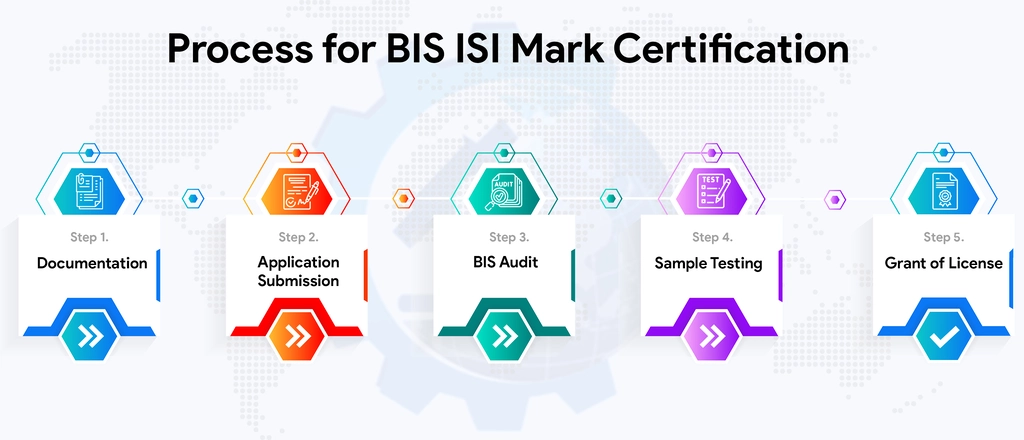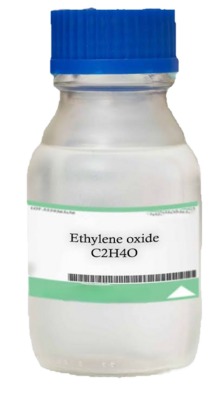BIS CERTIFICATION PROCESS INFORMATION Ethylene Oxide IS 5573
Introduction
Ethylene Oxide (EO) is a highly reactive chemical compound extensively used in the chemical industry for its versatility. It plays a critical role in producing various chemicals, such as ethylene glycol, used in antifreeze and polyester. Additionally, EO is a powerful sterilizing agent for medical devices, surgical instruments, and even spices, owing to its ability to destroy bacteria and other pathogens. The industry surrounding ethylene oxide is vital, feeding into sectors like healthcare, agriculture, and manufacturing.
The Bureau of Indian Standards (BIS) certification for Ethylene Oxide, under IS 5573:1984, ensures that the product meets stringent safety and quality standards mandated by the Indian government. This certification is crucial given the hazardous nature of ethylene oxide, ensuring it is handled and used in compliance with established guidelines to prevent accidents and health risks. The market for Ethylene Oxide in India is significant, driven by its broad range of industrial applications. As the demand for chemicals, sterilization processes, and related industries grows, the need for BIS certification becomes increasingly important to maintain safety and quality standards. Major applications of EO include the production of ethylene glycol, sterilization of medical equipment, fumigation of agricultural products, and the production of surfactants used in detergents and emulsifiers.
Overview of IS 5573:1984
Indian Standard IS 5573:1984 specifies the requirements and methods of testing for Ethylene Oxide, a highly reactive and versatile chemical compound used extensively in the chemical industry. This standard, established by the Bureau of Indian Standards (BIS), outlines stringent safety and quality criteria to ensure the safe production, handling, and application of Ethylene Oxide. It covers aspects such as purity, physical and chemical properties, packaging, and labeling requirements. Additionally, IS 5573:1984 includes detailed procedures for sampling and testing to verify compliance with these specifications. Adhering to this standard is crucial for manufacturers and users to maintain high safety and quality standards, minimizing the risks associated with this hazardous substance while ensuring its effective use in various industrial applications.
Key highlights
| Product Name | Ethylene Oxide |
| Applicable Indian Standard | IS 5573:1984 |
| Applicable Certification Scheme | Scheme 1 |
| Applicable Mark: | BIS Standard Mark (ISI Logo) |
| Compliance Requirement | Mandatory |
| Quality Control Order | ---- |
| Ministry | Ministry of Chemicals and Fertilizers |
| Scope as per Standard | The Indian Standard IS 5573:1984 specifies the safety, quality, and handling requirements for Ethylene Oxide. It covers guidelines for its use in various industrial applications, particularly in the production of other chemicals and as a sterilizing agent, ensuring that the product is safe for its intended uses. |

NOTE:
For Detailed Information about the Procedure for BIS ISI Certification, Visit :
Timeline for BIS Certification
The approximate timeline to obtain BIS certification for Ethylene Oxide to use the ISI mark as per IS 5573:1984 is as follows:
- For Indian Manufacturers (Standard Timeframe – 30 days)
- For Foreign Manufacturers (Standard Timeframe – 180 days)
Benefits of BIS Certification
BIS certification offers several significant benefits:
| Benefit | Description |
|---|---|
| Access to the Indian Market | BIS certification allows manufacturers and suppliers to legally sell Ethylene Oxide in India, providing access to a vast and growing market. . |
| Compliance with Indian Standards | BIS certification ensures that Ethylene Oxide meets the Indian standards for safety and quality, which is especially critical given its hazardous nature. |
| Enhanced Product Credibility | BIS-certified Ethylene Oxide is recognized for adhering to stringent quality controls, enhancing the credibility of the product in both domestic and international markets. |
| Increased Customer Trust | Customers, including industrial buyers and healthcare providers, are more likely to trust and purchase BIS-certified Ethylene Oxide, knowing that it meets the necessary safety and quality standards. |
| Benefits for MSMEs | Micro, Small, and Medium Enterprises (MSMEs) can benefit from BIS certification by gaining the ability to compete with larger players in the market, ensuring their products meet the same high standards. |
Obtaining BIS certification for Ethylene Oxide under IS 5573:1984 is essential for manufacturers and suppliers aiming to ensure safety, maintain quality, and gain a competitive advantage in the Indian market.
Conclusion
The successful BIS certification of Ethylene Oxide under IS 5573:1984 serves as a testament to the importance of strict compliance in the chemical industry. It showcases how adherence to national standards not only fulfills regulatory obligations but also enhances market credibility, builds customer trust, and opens new avenues for business growth, particularly for MSMEs. By aligning with BIS standards, companies contribute significantly to the safety and reliability of chemical products, ensuring that they are fit for use in critical applications.
Aleph INDIA is the world's leading consulting firm and a trusted service provider, specializing in Product Certification, Testing, Training, Regulatory Compliances, and Indian Standard Assessments. Our comprehensive services include ISI Certification, Foreign Manufacturer Certification, BIS Registration for Electronic and IT Goods, EPR Registration, TEC Certification, WPC License, and more. Contact us for a hassle-free certification process, and ensure your products meet the highest standards with ease.
For more updates and detailed procedures, stay connected with Aleph INDIA and ensure your products are always compliant and top-quality.
Frequently Asked Questions
International Audits & Participation
Testimonials
BIS REGISTRATION FOR ELECTRONIC & IT PRODUCT
In the era of globalization, world trade is growing rapidly and henceforth, Manufacturing and Import/Export businesses are also growing drastically...View More
BIS CERTIFICATE FOR FOREIGN MANUFACTURER
The Economy of India-the fastest developing economy on the globe with the capabilities that help it matches up with the biggest international...View More
PRODUCT CERTIFICATION SCHEME (ISI MARK) FOR DOMESTIC MANUFACTURERS
Anything a person buys from food to cars, clothes to electronics, branded to unnamed products there is always a question that wanders in one’s...View More
WIRELESS PLANNING AND COORDINATION (WPC)
WPC: Wireless means communication done from one point to another point without the wires and cables. Electromagnetic waves carry the ...View More
BUREAU OF ENERGY EFFICIENCY (BEE) CERTIFICATE
BEE CERTIFICATE: Energy is the future, and its conservation is the way of the bright future. Everyone claims the environment is important...View More
E-WASTE MANAGEMENT
E-waste is one of the world's fastest-growing trash streams. We currently manufacture almost 50 million tones of it each year...View More
View All Services
Request a call back.
Would you like to speak to one of our Senior Technical advisers over the phone? Just submit your details and we’ll be in touch shortly. You can also email us if you would prefer.






























